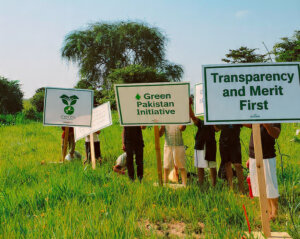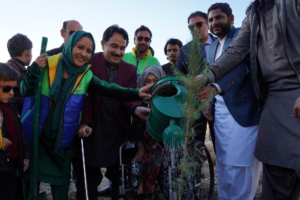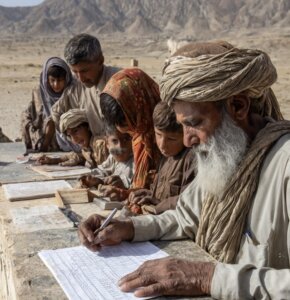Syed Ali Shah:
The recent dismissal of 114 absentee teachers in Balochistan marks a pivotal moment in the province’s long-overdue effort to address the crisis in its education sector. With an inquiry underway against an additional 2,000 teachers, the Balochistan government is sending a clear message: education is no longer to be taken lightly. Chronic absenteeism has plagued the region’s schools for years, compromising the quality of education for countless children. The actions taken by the provincial government, under the leadership of Education Minister Raheela Hameed Khan Durrani, reflect a commendable commitment to accountability, transparency, and educational reform.
Chief Minister Balochistan, Mir Sarfaraz Bugti deserves appreciation for upholding the banner of merit in teachers recruitment and directing the education department to make sure out of school children are in schools.
This bold move is not an isolated effort but part of a broader strategy that includes reopening 400 previously non-functional schools, enhancing educational infrastructure, and establishing School Management Committees (SMCs) to engage local communities in governance. These initiatives are critical in a province where vast rural areas and underdeveloped regions have long suffered from a lack of access to quality education. Reopening these schools, particularly in remote areas, will expand educational opportunities and bring long-term benefits to underserved communities.
However, while these steps are vital, Balochistan faces deep-seated structural challenges that will require more comprehensive solutions. The province’s shortage of educational facilities, coupled with the continued lack of qualified and committed teachers, underscores the need for further innovation.
In this context, an approach recently introduced by the Punjab government could offer a promising model. Chief Minister Maryam Nawaz has announced plans to hand over thousands of government-run schools to public-private partnerships (PPPs) to improve the quality of education. This initiative seeks to leverage the expertise and resources of the private sector to address inefficiencies within the public system. Balochistan, with its unique challenges, could benefit greatly from such a strategy.
The PPP model could provide much-needed support in teacher training, curriculum development, and school management. By incorporating private sector efficiency with public accountability, it could address the chronic problems of absenteeism and infrastructure development. It also allows for innovative educational approaches, as well as better oversight through community involvement, echoing the role SMCs are already playing in Balochistan.
While the province’s government has made significant strides in improving the educational landscape, adopting and adapting the PPP model could be a game changer. A partnership between public and private entities has the potential to create a sustainable system, offering both modern educational resources and stringent oversight to ensure that students receive the education they deserve.
Raheela Hameed Khan Durrani’s vision of a robust, effective education system is laudable, and the ongoing reforms are a step in the right direction. But if Balochistan is to truly turn the page on its troubled education sector, it must embrace innovative solutions like public-private partnerships to bring about the transformative changes that its children so desperately need. Only by doing so can the province ensure a brighter, more promising future for the next generation.






